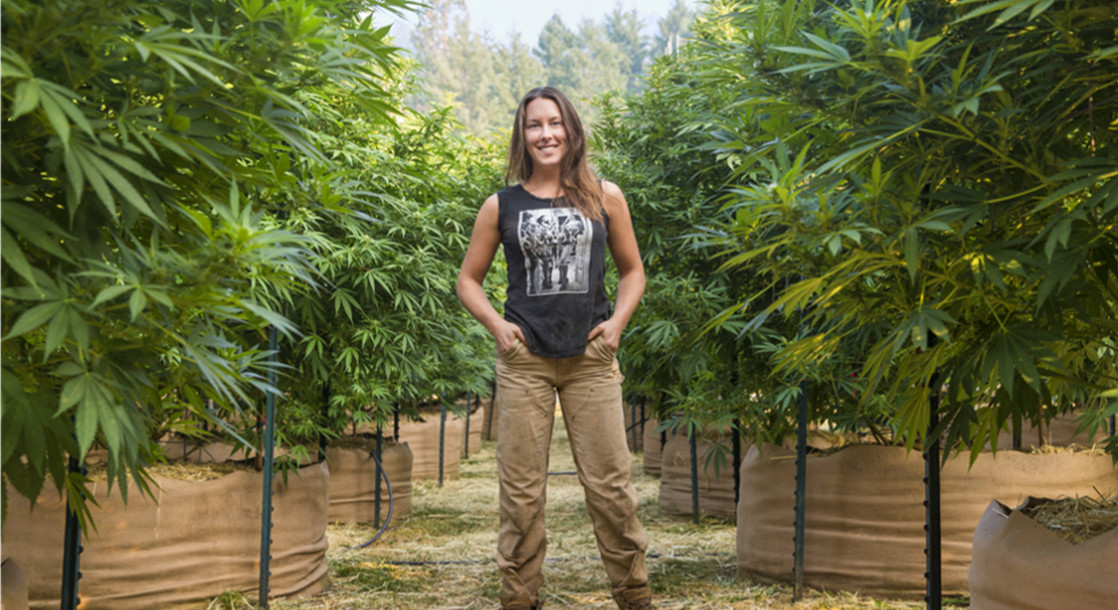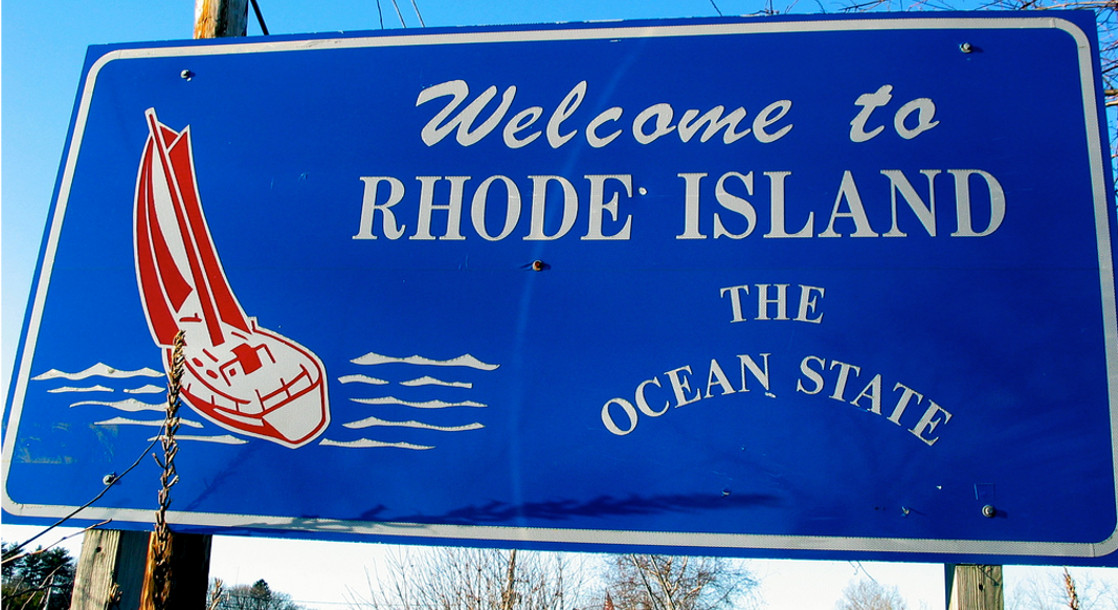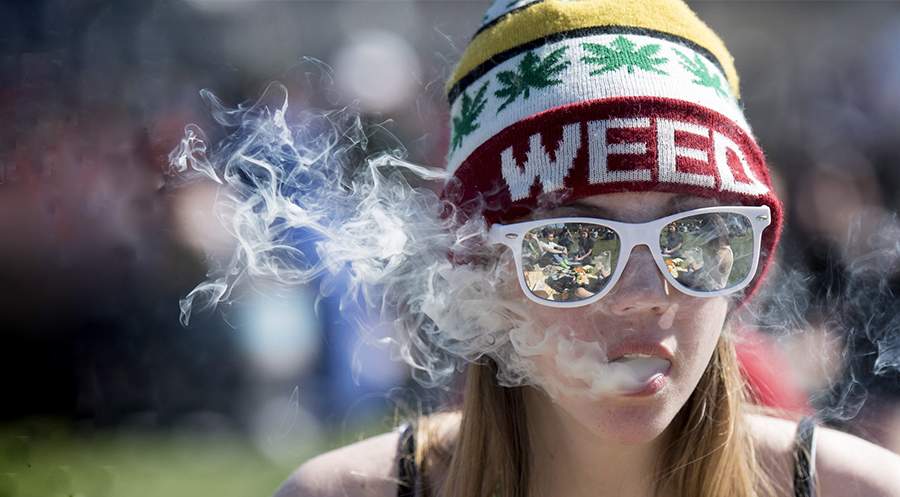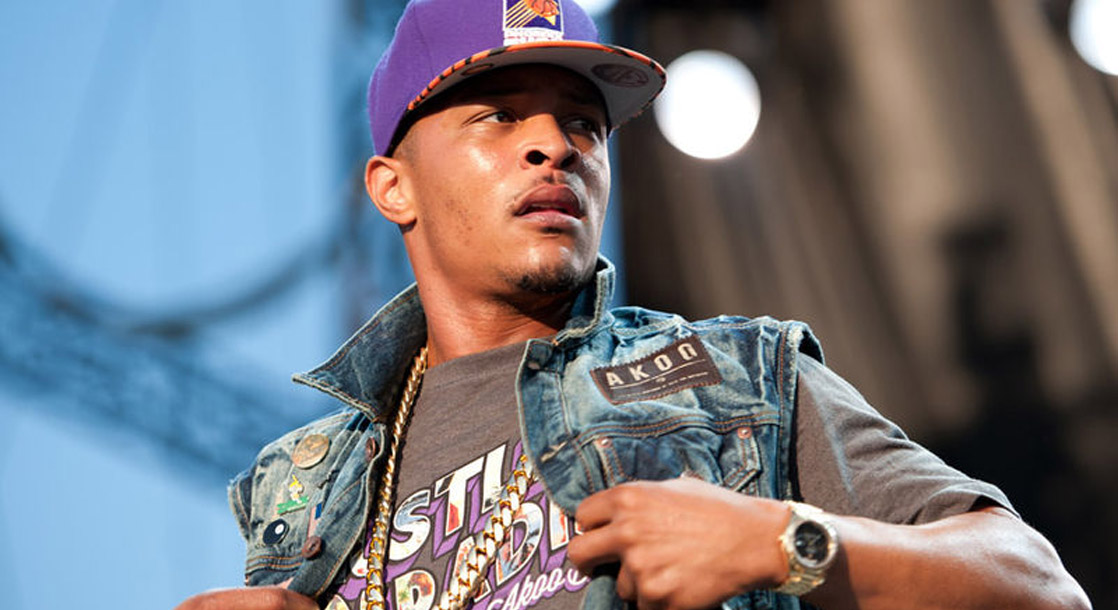Hannah Whyte of Emerald Queen Farms, Loudpack’s first Legacy partner. Photo courtesy of Loudpack
As the cannabis industry expands in the wake of legalization and the Green Rush, small farmers often struggle to navigate complex state regulations as they find their place in the newly legitimate market. Growing good weed isn't enough to make it anymore: Growers need not only an avenue to ensure that their weed is compliant with state standards, but also a relationship with legal retailers and brand recognition among consumers. In addition to the difficulties of adapting to a newly legal market, the legendary marijuana farms of northern California have also grappled with devastating wildfires over recent years — making a community of like-minded collaborators a vital asset for craft cannabis producers.
To address these challenges and support local cannabis communities, Loudpack — a brand encompassing its own marijuana farm in addition to a syndicate of other cultivators — has launched the Loudpack Legacy initiative. The idea is to help these small pot farmers thrive in today's market while enabling them to remain focused on what they’re best at: they do the farming, while Loudpack takes care of the rest. “We are thrilled to be a part of Loudpack Legacy and to have this unique opportunity to get our flower into the hands of more consumers, allowing people all over California to enjoy our product,” says Loudpack’s first Legacy partner, Hannah Whyte of Emerald Queen Farms. “Humboldt County is really the bedrock of the cannabis community in California and it is very exciting for small farms like ours to finally have a platform to showcase these traditional styles of farming and spread awareness of our sustainable and mindful practices.”
MERRY JANE caught up with Loudpack CEO John Cochran to learn more…
This interview has been edited for length and clarity.
MERRY JANE: How would you describe what Loudpack is?
John Cochran: We're one of the largest producers of [cannabis] products in the state of California. We're a rapidly growing family of brands, for whom we produce, package, test, and deliver [cannabis] to retailers around the state. We have twelve different brands now: some of those we created ourselves, like Kingpen and Loudpack. And under Loudpack, we have a host of different branded products: Loudpack extracts; and with our new facility being built and coming up to speed in Greenfield, California, we've added Loudpack flower, prerolls, vapes, edibles, and mints. We also brought in brands from other states, [like] a new gummy brand Smokies, who were doing great already in Oregon and Washington, and we brought in a California brand called Honey Pot, [which] we acquired earlier this year. The entrepreneur who started it, Corey Thomas, has joined our team as manager for the brand. So we are really a brand, a portfolio of bands, and we're also a sales and distribution company. And we do that for all of our own stuff, while bringing on brands that we don't produce — smaller or up-and-coming brands [that are] looking for a route to market. We buy goods from them and sell and distribute those products to nearly 500 stores in California today.
What are the standards for the brands you take on?
We're looking for brands that complement the portfolio. We want to believe in the brand and products — do they meet same quality standards we have for our own products? We want to work with people who we want to spend time with, and who are good to work with in a rapidly emerging market like cannabis in California. We don't want to get conflicted in a major way: we want things to complement the portfolio, but that won't stand on top of each other in the market either. There's a balance, and at the same time, there's lots of opportunity as some of these different product segments emerge.
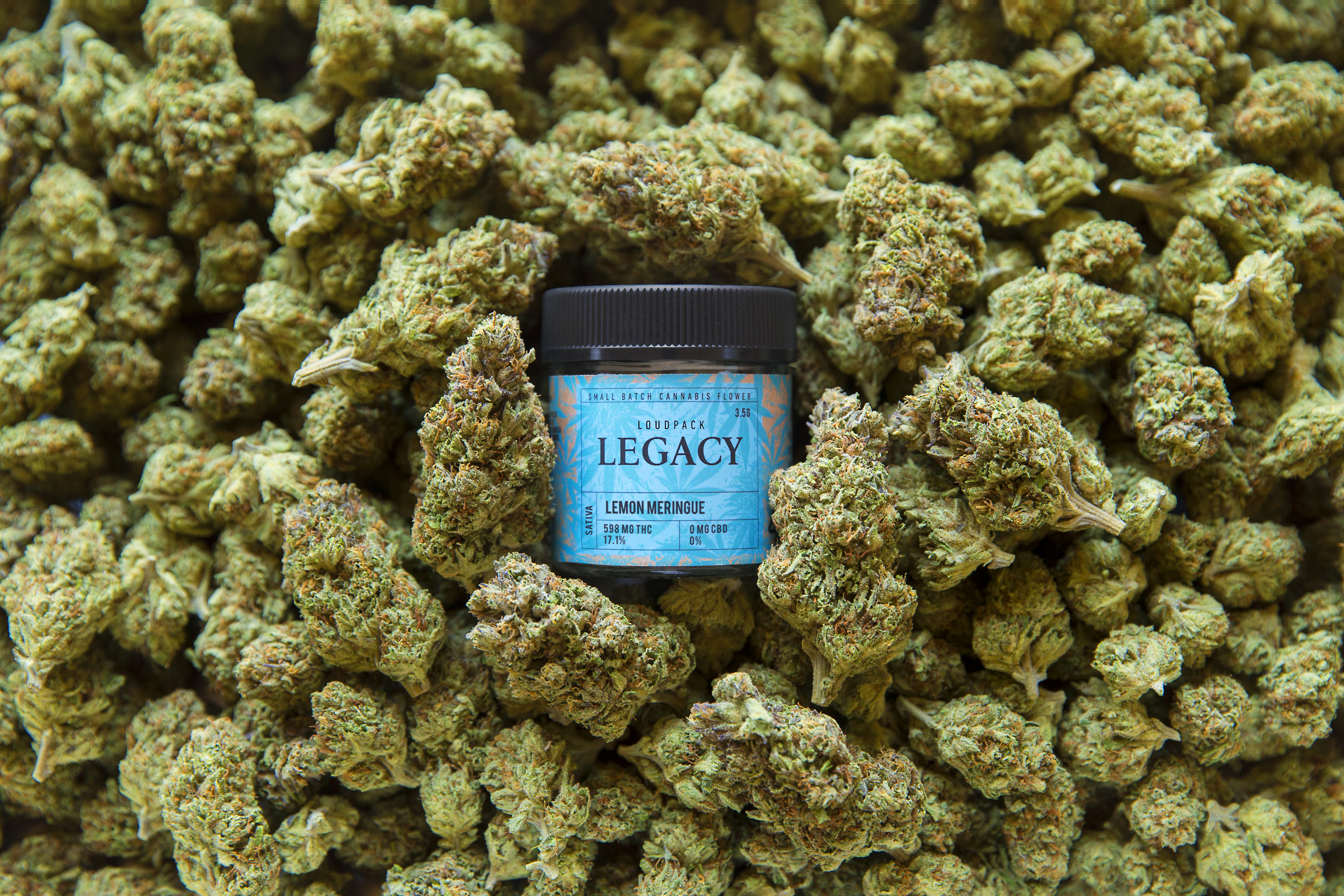
How are these brands cultivating their cannabis? Indoor, outdoor, or greenhouse?
It depends on type of product. It's like anything else — it's [about] how good of a farmer are they, what is the quality of the product, and are they reliable? Once we put a product into Legacy, for example, you want it to be of high quality. Consumers and retailers expect consistency.
On the processed goods side, it's much more of a branding type conversation. It's about brand packaging, people, and personality of the brand — and obviously the features and benefits you're providing to the consumer. Like other markets that emerged over time, with cannabis it's becoming clear: Different consumer demographics and their needs and desires are different than other demographics. Millennial men between 21 and 30 are a different demographic than young mothers between 35 and 45. The products they're seeking, and the brands that match up with those consumers, are all very different — that makes for a patchwork quilt that's becoming what this portfolio is starting to look like.
So tell me about the Loudpack's new program Legacy.
We're just starting to build it up. We have a host of really great relationships all over the state of California, and the Legacy program has really been started mostly because we know there's a lot of great material coming from farmers that are looking for a way to get their product to market; to turn their farming into a return on all that hard work. There's a lot of these small farmers who look at what it takes after harvest to get the product to retailers, and they don't have a way to do it.
The Legacy program affords them a way to do that legally, which makes it easy for them. We're collecting cultivation and excise taxes, taking care of testing, making sure packaging is compliant, and selling and delivering it to the retailer. All of that is a lot of hard work, but when you have the time, assets, and scale we do, it's affordable, and we can do that on their behalf. We give them some exposure with Legacy.


